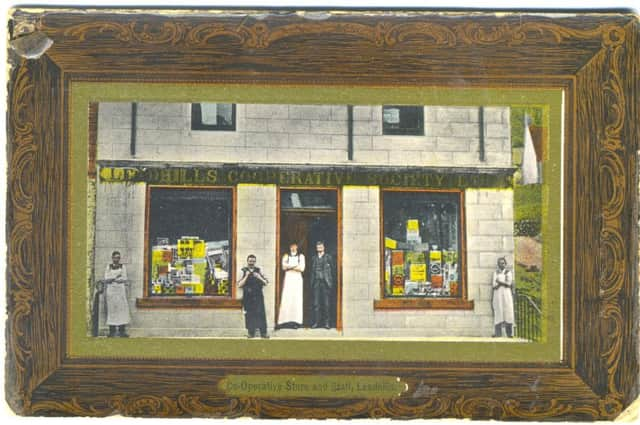How the Co-op was born here and paid dividends to the world


The village wasn’t chosen on a whim but for the very simple fact that it can lay claim to being the true birthplace of the co-operative movement, one which branched out from there to the rest of the planet.
Having said that, on its way to spreading its influence around the globe, it stopped off in places far closer to home like Coalburn, Douglas Water, Forth and even Leadhills (pictured) - to name just a few!
Advertisement
Hide AdAdvertisement
Hide AdYou’d probably have to be in your late forties now to remember the days when the ‘Co’ practically dominated our town and village main streets.
Some of the bigger Co-operative Societies, such as Lanark’s and Carluke’s, had several different branches selling everything a household could want, from clothes to meat - the latter sold from the uncompromisingly titled ‘Fleshers Departments’.
It all started as part of the then-revolutionary reforms Robert Owen brought in when he took over the running of New Lanark from his father-in-law David Dale at the dawn of the 19th century.
Apart from providing education, cultural pursuits and exercise for the village millworkers and their children, he opened a shop run for the benefit of the villagers - and not for pure commercial, private gain.
Advertisement
Hide AdAdvertisement
Hide AdIt is now widely regarded to have been the world’s very first co-operative store, passing on savings made from bulk buying stock to its customers, with the profits going straight into running the village school.
Possibly the first foray abroad for the movement came when Owen tried - unsuccessfully - to replicate his New Lanark social experiment over the Atlantic with the founding of the New Harmony community (nothing really changes - socialism proved a harder sell in the USA than in Scotland!).
In the meantime, the Co-operative ideal was growing far more successfully near to its birthplace.
Mining communities in Lanarkshire, with their low wage economies, quickly adopted the ‘Co’ as their way of avoiding the grasping ‘company stores’ of the day, forming co-operative societies which ‘owned’ their local shop and enjoyed a share of what profits it made; the famous ‘divi’ was born.
Advertisement
Hide AdAdvertisement
Hide AdAt their height, the local co-ops performed a role in their communities far beyond being simply the local shop. In some cases they were a village’s social work department as well as its major shop.
The mining areas of Clyesdale went through some very hard times, especially in the depths of the Thirties depression.
There are still elderly folk alive today who were children at the time but still bless the memory of their local Co-op manager for preventing their family starving by allowing credit when times were particularly tough and slipping the odd extra item into the shopping basket without asking for payment or even thanks.
One former Coalburn Co-op manager of that era once told the Gazette: “If you were a good Co-op manager, you knew everyone in the village and knew what was going on in that family. You knew who to give credit to knowing they would definitely pay you back when they had the means. You knew which families were going through a particularly bad patch and quietly helped them as much as you could. That loyalty to them was paid back in full to the society.”
Advertisement
Hide AdAdvertisement
Hide AdObviously times have changed and the ‘Co’ is not the power it once was on Lanarkshire’s main street and many will remember the sad closures of Co-op departments leaving shopfronts on Lanark High Street and Blantyre’s Glasgow Road empty.
However, in Britain the Co-operative has, in recent years, revamped and re-launched itself and the ideal itself is still growing abroad; one Gazette reader recently reported seeing a Co-op while on a trip to Iran, of all places!
There are many in the movement who believe that, far from being on the wane, it’s finest hour is yet to come.